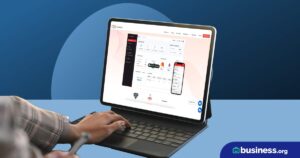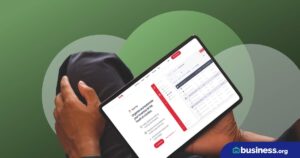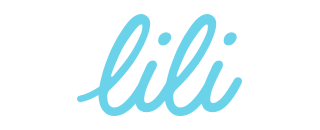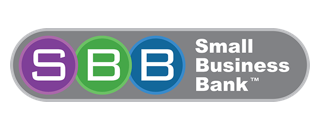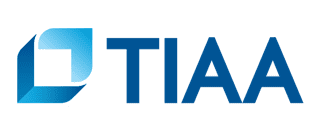💸 See if your business qualifies for a tax credit worth up to $26k per employee. 📞 Call Now: 855-979-9597
Surviving an Economic Downturn: Why Cash Is King for Small Businesses
We are committed to sharing unbiased reviews. Some of the links on our site are from our partners who compensate us. Read our editorial guidelines and advertising disclosure.
The Federal Reserve has raised interest rates to the highest point in 15 years in an effort to curb inflation. Meanwhile, many financial experts and economists are predicting a recession in 2023.
For small businesses, cash is king once again.
While many businesses may have turned to loans or lines of credit to fund operations in recent years, these options are increasingly cost prohibitive as interest rates rise.
We’ll explore why cash is essential for small businesses and how cash can help you weather an economic downturn.
By signing up I agree to the Terms of Use and Privacy Policy.
Why cash is king for small businesses
The phrase “cash is king” can mean different things to different people. For small businesses owners, it emphasizes the importance of positive cash flow and a healthy cash reserve.
There are many reasons why cash flow is important for small businesses. It can help you make quick decisions in response to economic uncertainty. It also gives you the flexibility to invest in new opportunities, pivot your business model or reduce expenses as needed.
Here are a few other reasons why cash is king for small businesses.
- Cash is necessary for day-to-day operations. Without cash, you can't pay your bills, you can't make rent and you can't afford to invest in your business' future. This can hurt your bottom line.
- Cash helps small businesses take advantage of opportunities. Small businesses need cash to seize growth opportunities, such as expanding their product line, hiring staff or investing in strategic acquisitions. Without cash, you may struggle to keep up with your competitors or take your business to the next level.
- Cash provides a cushion during economic downturns. A recession can be especially tough on small businesses, as demand for goods and services drops. Cash provides a cushion that ensures you can cover operating expenses and stay afloat until the economy recovers.
- Cash reduces reliance on debt. Small businesses often have limited access to credit, which means they must rely on cash to fund operations. By reducing your reliance on debt — especially in a rising interest rate environment — you can avoid the added costs of business loans and credit lines.
4 safe investments to help grow your cash
Cash sitting in a traditional savings or checking account is better than no cash at all.
But as interest rates continue to rise, it’s beneficial to explore safe investments and interest-earning bank products that can help grow your cash reserves without exposing you to market risk.
1. High-yield savings accounts
A high-yield savings account is an interest-earning account mostly offered by online banks and credit unions.
High-yield savings accounts offer two major perks:
- They’re safe: Savings accounts are insured up to $250,000 by the Federal Deposit Insurance Corporation (FDIC). Even if the bank goes bust, your money is protected up to this limit.
- They’re liquid: A liquid asset is easy to access. Savings accounts are very liquid because you can take money in and out without penalty (though some banks may restrict you to a certain number of withdrawals per month.)
They also offer substantially higher interest rates than a traditional savings account.
You likely won’t find high-yield savings accounts with attractive rates at brick-and-mortar banks. Online banks like Bluevine — which offers interest-bearing checking accounts — and Lili can afford to give customers higher rates because they don't face the same overhead costs as traditional banks.
Compare the best high interest accounts for business
Data as of 4/20/23. Offers and availability may vary by location and are subject to change.
2. Money market funds
Not to be confused with a money market account, money market funds are actually mutual funds that invest in low-risk, short-term debts, such as CDs and U.S. Treasuries.
They’re typically sold by brokerage firms and mutual fund companies.
The returns are often on par with CD interest rates. One advantage: It’s a liquid investment, which means you can cash out at any time.
But because they aren’t FDIC insured, they can technically lose principal, though they’re considered very safe.
3. Certificates of deposit
Investing in a CD, or a certificate of deposit, is a good way to earn more interest than you’d get with a regular savings account.
Online CDs tend to earn comparable rates to high-yield savings accounts, though you may find slightly better CD rates for longer terms, depending on the financial institution.
You’re required to lock up your money for a certain time — anywhere from three months to five years or more — and in return, you receive a fixed interest rate on your deposit. Typically, the longer the duration, the higher the interest rate. CDs are also FDIC insured, just like checking and savings accounts.
Here are the downsides: You risk losing your interest and even some principal if you need to withdraw money before the CD’s maturity date.
As interest rates rise, another risk with CDs is tying yourself to a certain APY, only for rates to jump again in the future.
4. Treasuries
When you buy treasuries, you’re investing in securities backed by the full faith and credit of the U.S. government. Unless the federal government defaults on its debt for the first time in history, investors get paid.
There are a few types of Treasuries with various maturity dates:
- Treasury bills (T-bills) mature in one year or sooner.
- Treasury notes stretch out up to 10 years.
- Treasury bonds mature in 20 or 30 years.
- Treasury inflation-protected securities (TIPS) mature in five to 30 years.
T-bills are standing out from the pack of other treasuries right now. They have the shortest-term yields, so the bond matures in less than a year, with terms as short as a few days.
T-bill yields are higher than they’ve been in over a decade. In March 2023, the yield on a 52-week T-bill was near 5%, which is shockingly high for these investments.
You can buy T-bills and other treasuries straight from the U.S. government through the TreasuryDirect website.
But some investors prefer to purchase Treasury ETFs, short for exchange traded funds, which are bought and sold on market exchanges.
Improving your cash flow and cash reserves
Cash flow management plays a critical role in whether a small business succeeds or fails. Even profitable businesses can go bankrupt due to poor cash management.
Here are four ways to bolster your cash flows.
1. Establish a cash flow management system
A cash management system can help you track your expenses and revenue, giving you a clearer picture of how much money is coming in and going out.
You can use financial software or hire a professional accountant to help create a cash flow statement.
You can also conduct a cash flow projection using a basic spreadsheet, such as this cash flow management spreadsheet from SCORE, a partner of the Small Business Administration.
2. Invoice promptly and follow up on late payments
Late payments from customers is one of the most common reasons small businesses face a cash flow crunch. To avoid this, invoice your customers quickly and follow up on late payments. You can send reminders to customers about outstanding invoices or offer incentives for early payments.
3. Reduce expenses
Reducing expenses is another effective way to improve your cash flow. Look for areas where you can cut costs, such as reducing office space, negotiating with suppliers for better pricing or trimming your marketing budget. Every little bit helps, and even small savings can make a big difference over time.
4. Build a cash reserve
A cash reserve is an emergency fund that you can tap if you face unexpected expenses or a drop in revenue. A healthy cash reserve is always important, but it becomes critical during a market downturn.
You can start building your cash reserve by setting aside a portion of your profits each month. Aim to build up at least six months' worth of expenses so that you can weather any financial storms that may come your way.
Trying to grow your cash reserve? Here are the 5 biggest money saving opportunities for small business owners.
Rachel Christian is a Certified Educator in Personal Finance and a senior writer at The Penny Hoarder. She focuses on retirement, small businesses, investing and taxes.

Browse hundreds of loan options, custom-tailored to your business and budget needs, from a single, simple platform.

